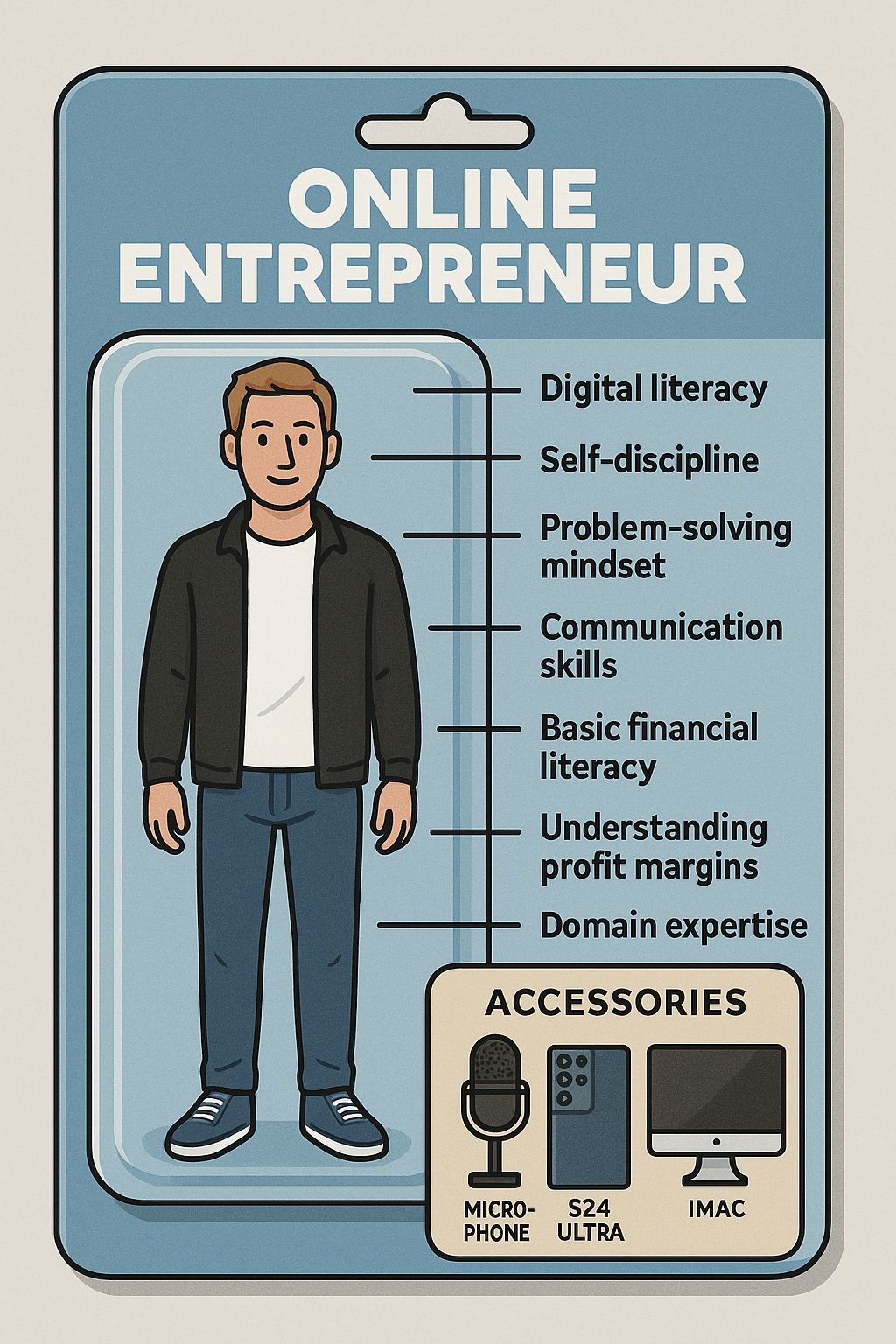Special soft skills to be an entrepreneur
Question and Answers about entrepreneurship
How do I come up with a good business idea?
Start with a problem you understand well or a need you’ve identified. Focus on solutions that bring value to a specific audience.
How do I write a business plan?
Outline your business idea, target audience, offer, marketing strategy, financial projections, and goals. Keep it clear and realistic.
How do I finance my business?
Use personal savings, loans, grants, or support from investors. Start small, validate your idea, and scale with revenue or external funding.
How do I market and sell my product or service?
Know your audience, create a strong online presence, and use SEO, social media, and email marketing. Build trust and ask for feedback.
How do I manage and grow my business?
Use systems to organize tasks, track performance, reinvest profits, and focus on what brings the most results.
How do I balance my personal and professional life as an entrepreneur?
Set clear work hours, prioritize tasks, and take breaks. Protect your time and energy to avoid burnout.
How do I stay motivated and focused as an entrepreneur?
Set small goals, celebrate progress, and stay connected with others who support your vision.
How do I overcome challenges and obstacles as an entrepreneur?
Stay flexible, ask for help when needed, and treat problems as opportunities to learn and improve.
How do I network and build relationships as an entrepreneur?
Join communities, attend events, collaborate with others, and always provide value before asking for anything in return.
How do I know when my business is successful?
When it consistently makes money, serves your customers well, and supports your personal and professional goals.
We will continuously cover those questions in our Content, but there is this question about the soft skills for entrepreneur that few are talking about and that we consider quite important to analyze.
Knowing yourself is the very first step to avoid failing when you want to be an online entrepreneur.
Entrepreneurship Soft Skills
Entrepreneurship often requires a unique set of soft skills. Check 10 of the most important soft skills for entrepreneurs:
Creativity
Being able to come up with new and innovative ideas to solve problems and create value.
Creativity is the ability to produce new and original ideas, thoughts, or concepts. It involves the ability to think outside the box and come up with unique solutions to problems. Creativity is a valuable soft skill in many fields, including the arts, business, science, and engineering. It is often associated with imagination, innovation, and originality.
Persistence
Having the determination and drive to keep pushing forward, even in the face of obstacles and setbacks.
Persistence is the quality of continuing to do something even when it is difficult or opposed by others. It is the ability to persevere and not give up, even in the face of obstacles or setbacks. Persistence is an important quality for achieving success in many areas of life, as it allows individuals to keep trying and working towards their goals despite any challenges they may face. It is often associated with determination, tenacity, and resilience.
Resilience
The ability to bounce back from failure and continue moving forward with your goals.
Resilience is the ability to recover from or adjust to difficult situations, such as illness, adversity, or trauma. It is the mental toughness and ability to bounce back from challenges, and to continue to function and thrive despite facing difficult circumstances. Resilience is an important quality for individuals to have in order to cope with stress and challenges, and to maintain their mental and emotional well-being. It is often associated with adaptability, flexibility, and the ability to overcome adversity.
Adaptability
The ability to quickly and easily adapt to changing circumstances and market conditions, no doubt is one the most important soft skills for entrepreneurs.
Adaptability is the ability to change or be changed in order to suit new circumstances. It is the ability to adjust to new environments, situations, or challenges, and to modify one’s behavior or approach as needed. Adaptability is an important quality for individuals to have in order to cope with change and to be able to adapt to new situations. It is often associated with flexibility, open-mindedness, and the ability to learn and grow.


